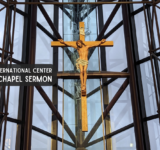In today’s News:
Colorado voters to decide on abortion limit
Polling shows a close race for a Colorado ballot measure seeking to ban abortion after 22 weeks of pregnancy, and backers are “very optimistic” that with enough volunteers and community outreach they will succeed, even while abortion advocates have outraised pro-life campaigners by millions in the weeks leading to the election. Proposition 115 asks voters whether to ban abortion in the state after 22 weeks of pregnancy, except in cases where a mother’s life is threatened. A 9 News / Colorado politics survey of 1,021 registered likely voters found 42 percent of respondents said they are certain to vote yes on Prop 115, 45 percent said no, while 13 percent are uncertain, 9 news reported. If the ballot measure becomes law, doctors would face a three-year license suspension for performing or attempting to perform an abortion of an unborn child beyond 22-weeks of gestation. Women would not be charged with seeking or obtaining an abortion.
Federal judge overturns 48-hour waiting period
A federal judge on Wednesday ruled unconstitutional a mandatory 48-hour waiting period for women seeking abortion in Tennessee, which had been in effect since 2015. In the legal challenge brought by Planned Parenthood and the pro-abortion Center for Reproductive Rights, Judge Bernard Friedman wrote that most women are already certain about their decision to have an abortion when they go in for their first appointment. The judge cited testimony from abortion providers that abortion does not increase risk of negative psychological outcomes. He said the regulation placed an “undue burden” on women’s “right to abortion.”
Abortion advocates want state to pay for abortion
The abortion industry in Pennsylvania is suing to force taxpayers to pay for elective abortions through the state medical assistance program. On Wednesday, lawyers representing eight Pennsylvania abortion groups argued their case before the Commonwealth Court, WHYY reports. The Hyde Amendment prohibits federal taxpayer funding for abortions in Medicaid, with exceptions for rape, incest and threats to the mother’s life. However, some states do cover elective abortions in their state medical assistance programs. Currently, 16 do, but Pennsylvania is not one of them.
Bishop disciplined for opposing same-sex marriage
After refusing to conduct same-sex “marriages” in his diocese, William Love, the Episcopal bishop of Albany, New York, was found guilty of violating the “discipline of the church” and the canon law of the church. At the 2018 general convention, the Episcopal Church had made changes to the rites for same-sex “marriage” that were approved as a trial at the 2015 convention. In response to the recent decision, in which he was unanimously found guilty of “failing to abide by the discipline and worship of the Episcopal Church, and thus violating my ordination vows”, Love warned that the result of the case “will severely impact not only me and the ministry entrusted to me as bishop of Albany, but it will also seriously impact the life and ministry of the diocese.” The panel has yet to reconvene and announce what penalties Love will face.







